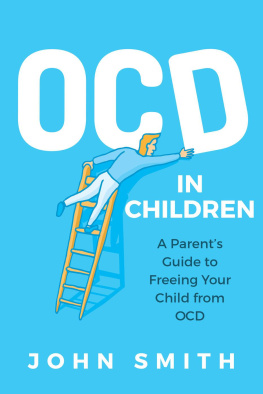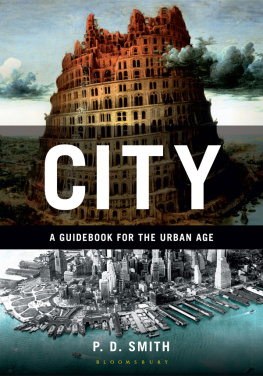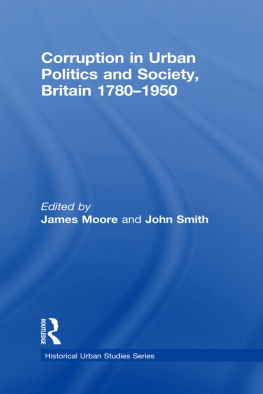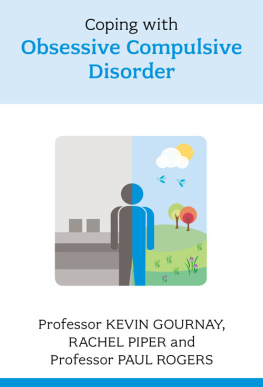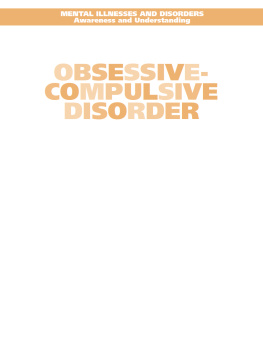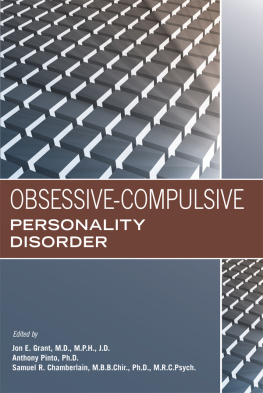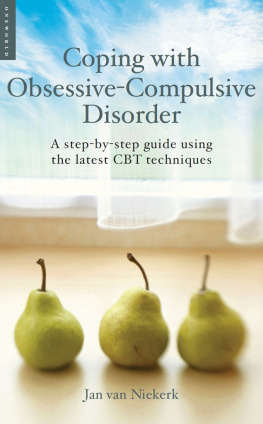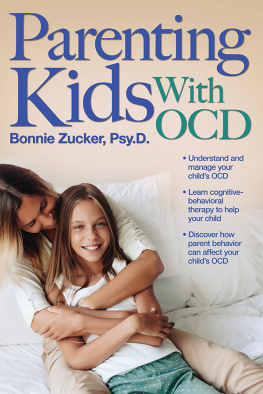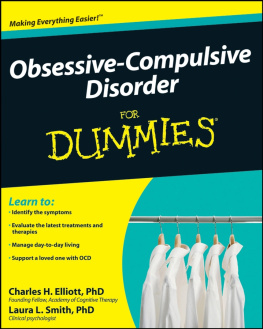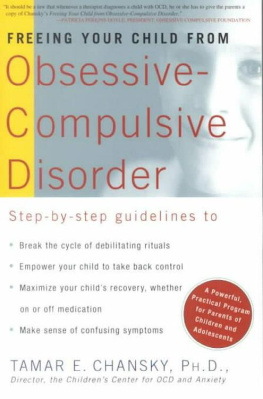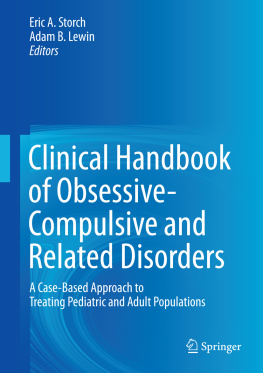Also by John Smith
CHAKRAS FOR BEGINNERS: Awaken Internal Energy, Balance Chakras, and Heal Yourself
Nervous Breakdown
Obsessive Compulsive Disorders in Children: A Parents Guide to Freeing Your Child from OCD

C opyright 2018 by John Smith
All rights reserved. No part of this publication may be reproduced, distributed, or transmitted in any form or by any means, including photocopying, recording, or other electronic or mechanical methods, without the prior written permission of the publisher, except in the case of brief quotations embodied in critical reviews and certain other noncommercial uses permitted by copyright law.
Contents
I F YOU WATCHED THE MOVIE As Good As It Gets , you may have a clear image of Jack Nicholson washing his hands obsessively with dozens of bars of soap whenever you hear the term OCD or obsessive-compulsive disorder. Or, if you are like many members of the younger generation, you associate OCD with requiring order and neatness in your surroundings and having a pronounced preference for symmetry. The problem with these two images is that they are not entirely accurate portrayals of what obsessive-compulsive disorder truly is and how it affects its sufferers.
Since you are reading this book, it is likely that you know a child who has OCD. This diagnosis can be terrifying when you first hear it. Especially since there is little education regarding what OCD actually is, you may have no idea what to expect, how to act, or where to find support. The purpose of this book is to educate you and offer you peace of mind when dealing with this condition in your child.
OCD is a mental illness. It can be debilitating for those who do not have the support to create coping mechanisms and to seek treatment. But treatment and learned coping mechanisms can also make it quite possible for your child to live a happy, normal life. Starting now is crucial in treating your childs disorder, in order to allow him to live a fulfilling life. Bear in mind; it is never too late.
But OCD in children offers a special opportunity to create lasting habits in your child that enables him to cope for the rest of his life. He can overcome struggles now, instead of later in adulthood when life with mental illness becomes even more challenging. This means that while the diagnosis you are facing may seem terrifying, it is easily rectifiable if your family acts together as a team to bring about solutions now instead of later.
This book will teach you how to recognize and treat symptoms of obsessive-compulsive disorder. It is a handbook for how you can act toward your child to foster a loving, supportive environment in which he can thrive. Finally, it will set your mind at ease by teaching you how to be proactive and take a part in your childs treatment and wellness. You are not powerless; you hold the keys to your childs betterment. The lack of education available in the medical world and the Internet is not a problem because this book will contain all of the information you need.
Living with someone with OCD is a challenge, but it is not a calamity. You will learn to lessen its impact on yourself, your other family members, and especially your child. The end result is a happy, well-adjusted child and a strong family unity that carries all of you through this trial.
B EFORE YOU CAN LEARN how to help and treat your child, it is critical that you gain a firm understanding of what obsessive-compulsive disorder, hereafter called OCD, entails. Understanding the condition and its symptoms can make you a more aware and involved parent when coping with a child who has this condition.
What is OCD?
In short, OCD is a mental disorder. It can affect people of all walks of life, including children. Some people experience it for short periods of time, most notably pregnant women or people under intense stress. For others, however, it turns into a lifelong issue that can feel hellish and crippling. In the Diagnostic Statistical Manual, which psychologists use to categorize and diagnose mental disorders, it is categorized as its own separate disorder because it is distinct from all others in its severity and presentation.
The obsessive-compulsive disorders main symptom involves a cycle of obsessions and compulsions. The obsessions are basically thoughts that intrude on a persons mind without warning. They can occur at any time and cannot be controlled. These thoughts may include images, voices, or unwanted ideas that cause the sufferer significant emotional distress.
To ease the distress and attempt to control the thoughts, an individual with the disorder will engage in compulsive behaviors. This is where you get Jack Nicholsons famous portrayal of obsessive hand washing. There are many compulsions an individual may engage in, from tapping on a door three times before entering a house to hand washing for hours on end to checking the oven numerous times.
This cycle may seem harmless enough. But as it engages more of a persons time, it can start to get in the way of normal daily activities. It can completely consume an affected individual and greatly reduce quality of life. Soon, a person living with OCD can give himself altogether to the cycle of obsession and compulsions and live in a constant state of distress.
In fact, the actual diagnosis of OCD cannot be made until an individual has reached this level of anxiety-inducing and distressing obsessions and compulsions. For it to be classified as a real mental illness, it must have a negative effect on the persons life.
Common Obsessions
You might be wondering what it is like inside of the mind of a person with this affliction. Here are some fictional examples of how people with OCD might feel and act:
An image about killing someone, brought on for no reason at all, enters a persons mind throughout the day. In disgust and terror that he is a psychopath, he hates himself. He will feel the need to make sure things are just right and to check the oven to make sure it does not set fire to the whole house in order to assure himself he is a good person who would never do something so horrendous.
A college girl walks into a messy dorm room in her sorority house. Seeing the mess makes her feel that she is failing at life. She is so overwhelmed that she begins to have a panic attack. The only way to keep things under control is to clean the room, setting everything in its exact spot. If it is not in its exact spot, it bothers her to no end and causes intense anxiety until she can set it there. Her roommate gets mad at her for always cleaning and yelling about things not being put back right. They fight a lot until the sufferer is eventually asked to leave the sorority.

